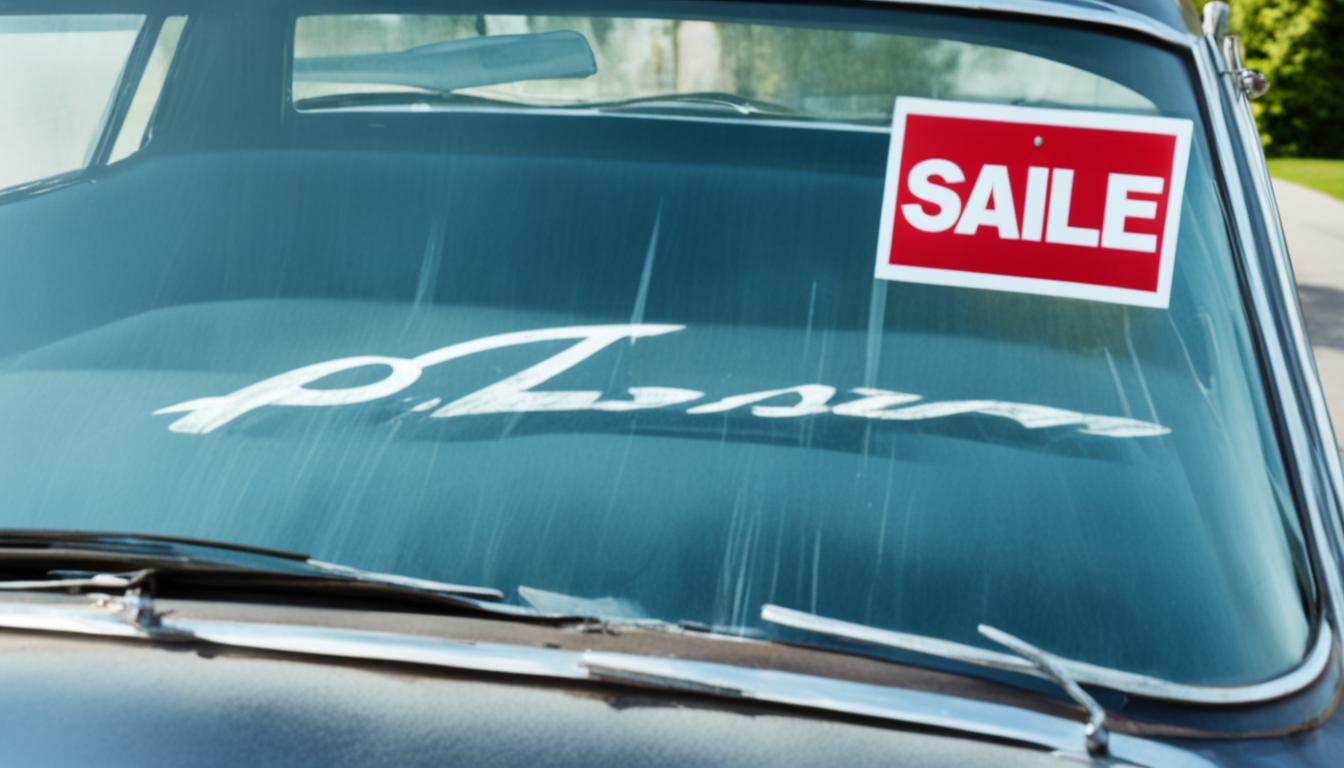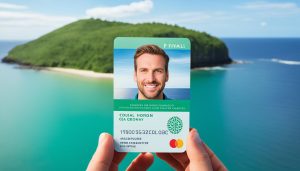Did you know that a used car in Ontario can save you up to 40% compared to buying brand new? With the massive first-year depreciation that new vehicles experience, purchasing a pre-owned car is a savvy financial decision for many Ontario residents. However, navigating the used car market in the province comes with its own unique challenges and considerations.
This comprehensive guide will cover the key steps, tax implications, required documents, insurance needs, and tips for evaluating and purchasing a used car in Ontario. Whether you’re buying from a dealer or a private seller, this guide will ensure you navigate the process with confidence and make an informed decision that aligns with your budget and driving needs.
From understanding the benefits and challenges of buying a used car in Ontario to navigating the paperwork, tax considerations, and vehicle inspection process, this guide has you covered. Get ready to drive away in your dream used car while avoiding common pitfalls and maximizing your savings.
Introduction to Buying a Used Car in Ontario
Buying a used car in Ontario can provide several benefits compared to purchasing a new vehicle. The most significant advantage is avoiding the steep depreciation that new cars experience in the first years of ownership. A new vehicle can lose up to 25% of its value in the first year and another 17.5% in the second year. By opting for a used car, you can let the original owner absorb this depreciation, resulting in a lower purchase price. Additionally, used cars are generally less expensive to insure and register compared to new vehicles.
Benefits of Buying a Used Car
Buying a used car in Ontario offers financial advantages, such as lower purchase prices and reduced insurance and registration costs. This can make used car ownership more accessible and affordable for many buyers.
Challenges of Buying a Used Car in Ontario
While buying a used car in Ontario offers financial advantages, there are also some challenges to consider. The used car market in Ontario has its own set of rules and regulations that buyers must be aware of, such as tax considerations, the risk of encountering curbsiders (unlicensed sellers), and the need to ensure proper documentation and vehicle history. Buyers must also carefully evaluate the condition, mileage, and overall suitability of the used car to their needs. Navigating these challenges requires research, caution, and attention to detail to make a successful used car purchase in Ontario.
Tax Considerations When Buying a Used Car in Ontario
When purchasing a used car in Ontario, the buyer is responsible for paying a 13% Retail Sales Tax (RST) on the vehicle. The tax is calculated based on the greater of the purchase price or the Red Book wholesale value of the vehicle. If the buyer pays less than the Red Book value, the tax will still be calculated using the higher wholesale value.
Retail Sales Tax (RST)
The 13% Retail Sales Tax (RST) is a critical consideration when buying a used car in Ontario. This tax must be paid by the buyer at the time of purchase, regardless of whether the vehicle is obtained from a dealer or a private seller.
Red Book Wholesale Value
The Red Book wholesale value is a pivotal factor in determining the taxes owed when purchasing a used car in Ontario. This value is provided in the Used Vehicle Information Package (UVIP) that the seller must provide to the buyer. The Red Book value represents the estimated wholesale price of the vehicle, which is used by the Ministry of Finance to calculate the appropriate sales tax, irrespective of the actual purchase price.
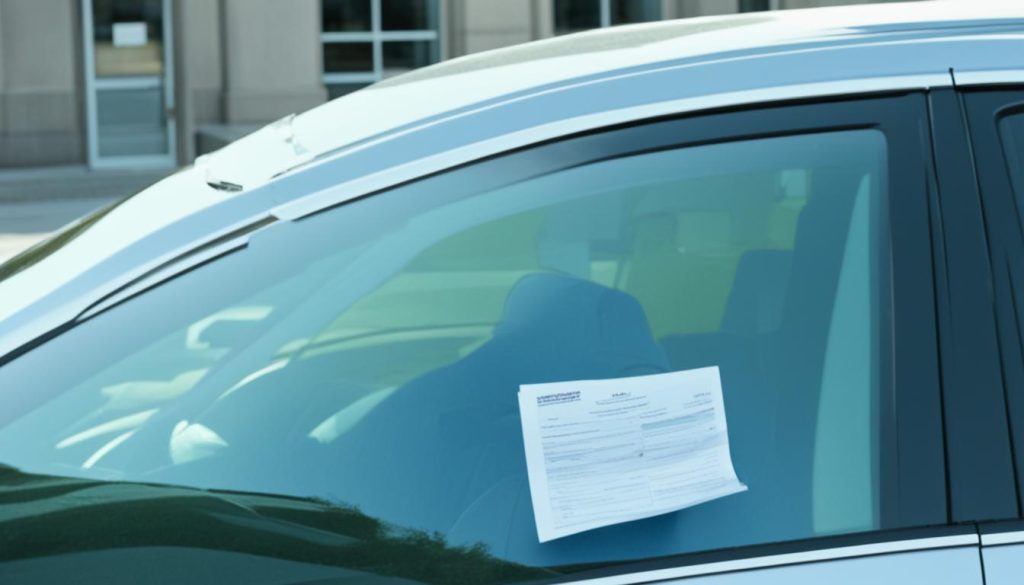
Beware of Curbsiders and Unlicensed Sellers
When purchasing a used car in Ontario, buyers must be wary of curbsiders – unlicensed individuals who misrepresent themselves as private sellers. These unscrupulous actors often conceal mechanical issues or even roll back the odometer to fetch a higher price, costing unsuspecting buyers thousands of dollars.
What are Curbsiders?
Curbsiders are individuals who operate outside the legal framework, posing as private sellers to exploit buyers in the used car market. They may misrepresent the vehicle’s condition, hide previous accident history, or tamper with the odometer to make the car appear more valuable than it truly is.
Protecting Yourself from Curbsiders
To protect yourself from falling victim to curbsiders, it is highly recommended to only purchase used cars from licensed dealers registered with the Ontario Motor Vehicle Industry Council (OMVIC). When dealing with private sellers, always request a Carfax report, thoroughly inspect the vehicle, and exercise caution. Verifying the seller’s identity and obtaining all necessary documentation, such as the Used Vehicle Information Package (UVIP), can help ensure a legitimate transaction.
Documents Required for Buying a Used Car in Ontario
When purchasing a used car in Ontario, buyers must be aware of the essential documents required to complete the transaction. These documents not only ensure a seamless registration process but also provide valuable information about the vehicle’s history and condition.
Used Vehicle Information Package (UVIP)
The Used Vehicle Information Package (UVIP) is a crucial document that must be provided by the seller when buying a used car in Ontario. The UVIP contains important information, including the vehicle’s wholesale value, registration history, VIN, and a bill of sale section. If buying from a dealer, the buyer can also order a UVIP from ServiceOntario if necessary.
Safety Standards Certificate (SSC)
Although not legally required from the seller, the Safety Standards Certificate (SSC) is an important document that certifies the fitness of the used vehicle. This certificate must be obtained to register the car with ServiceOntario. Buyers can obtain an SSC from any Ministry of Transportation-approved Motor Vehicle Inspection Station.
CarProof or Carfax Report
While not legally mandated, obtaining a CarProof or Carfax report on the used vehicle provides valuable peace of mind and detailed information about the car’s history, including any accidents, major repairs, or outstanding liens.
Bill of Sale
A bill of sale is required for the purchase or sale of any new or used car in Ontario. The bill of sale must include the vehicle’s VIN, make, year, power source, body type, color, model, purchase price, seller’s and buyer’s information, and the sale date.
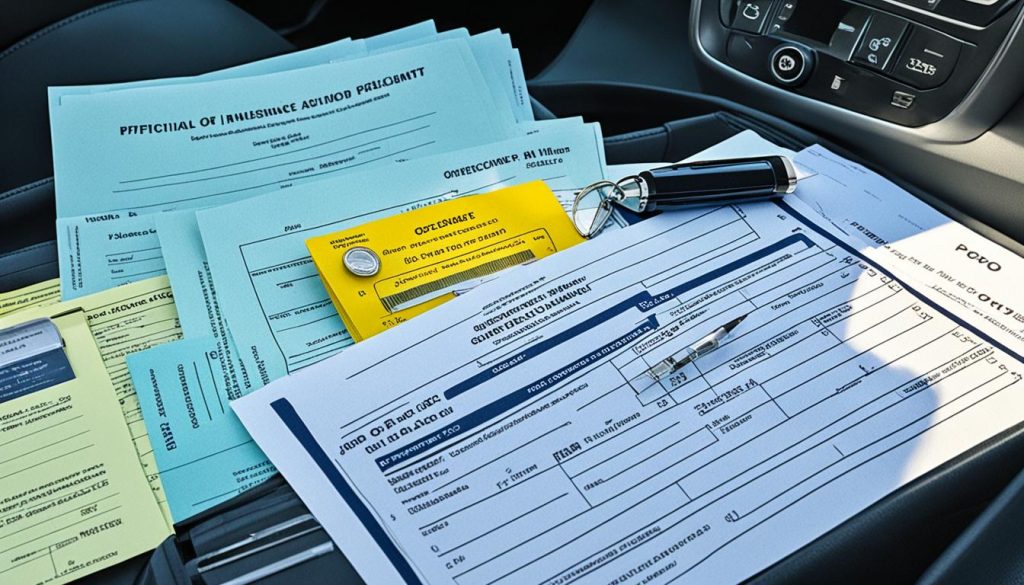
Registering a Used Car in Ontario
If you have purchased a used car privately, you must complete the vehicle registration process at ServiceOntario within six days of the sale. To do so, you will need to provide your Ontario driver’s license, the completed Used Vehicle Information Package (UVIP), proof of purchase (such as a bill of sale), the vehicle permit, the plate portion of the permit (if transferring plates), and the Safety Standards Certificate. The required fees, including taxes, will also need to be paid at this time.
For used cars purchased from a dealership, the dealer will typically handle the registration process on the buyer’s behalf, streamlining the process and ensuring all necessary paperwork is filed correctly.
Car Insurance Considerations
When purchasing a used car in Ontario, having the necessary car insurance coverage is essential. The Ministry of Transportation of Ontario mandates a baseline level of insurance from all providers, including liability, accident benefits, and uninsured automobile coverage. Buyers should carefully review their insurance needs and budget to ensure they have the appropriate level of coverage to protect themselves and their investment.
Mandatory Insurance Coverage in Ontario
The mandatory insurance requirements for used car buyers in Ontario include liability coverage, which protects against claims from other drivers or pedestrians in the event of an accident. Accident benefits coverage provides compensation for medical expenses and lost wages, regardless of who was at fault. Additionally, uninsured automobile coverage safeguards the buyer in case of an accident with a driver who lacks proper insurance.
Optional Insurance Coverage Options
In addition to the mandatory insurance coverage, used car buyers in Ontario may want to consider purchasing additional optional policies. These can include comprehensive coverage, which protects the vehicle from events such as theft, vandalism, or natural disasters. Collision coverage can help cover the cost of repairs if the buyer is involved in an accident.
Specified perils insurance can provide protection against specific events, like water damage, fire, or acts of God. Replacement value coverage ensures the buyer receives the full value of the vehicle in the event of a total loss, while gap insurance can cover the difference between the car’s value and the outstanding loan amount.
The desired level of optional coverage will depend on the buyer’s budget, personal preferences, and the overall condition and value of the used car. By carefully evaluating their insurance needs and selecting the appropriate policies, used car buyers in Ontario can ensure they are adequately protected and can confidently enjoy their purchase.
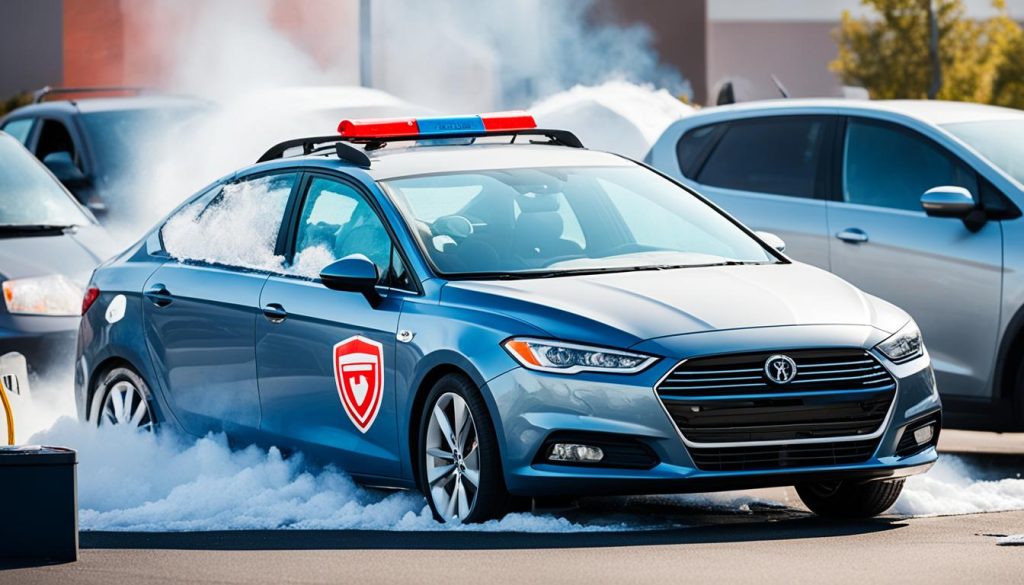
How to Buy Used Car Ontario?
When purchasing a used car in Ontario, fuel economy is a critical consideration, especially for those who commute long distances or have high mileage needs. Factors like the vehicle’s engine size, drivetrain (2WD vs. AWD/4WD), and body type (sedan vs. SUV/truck) can significantly impact fuel efficiency. Buyers should research the average fuel consumption rates of the models they are interested in to ensure the used car aligns with their driving patterns and budget.
Cargo Capacity and Practicality
The cargo capacity and overall practicality of the used car should also be evaluated based on the buyer’s lifestyle and needs. Those who frequently transport large items, have a large family, or work in a job that requires hauling equipment may need a vehicle with ample cargo space and seating capacity. Conversely, single commuters or city dwellers may prioritize a more compact, fuel-efficient model.
Engine Size and Performance
The engine size and overall performance of the used car are important factors to consider. Buyers who prioritize power and acceleration may opt for a model with a larger, turbocharged engine, while those focused on fuel efficiency may prefer a smaller, naturally aspirated powertrain. The balance between performance and fuel economy should be weighed against the buyer’s driving needs and budget.
Safety Ratings and Features
Safety is a critical consideration when purchasing a used car in Ontario. Buyers should research the safety ratings and features of the vehicles they are interested in, looking for models with advanced safety technologies like automatic emergency braking, lane keep assist, and blind spot monitoring. Checking the safety ratings from organizations like the National Highway Traffic Safety Administration (NHTSA) and the Insurance Institute for Highway Safety (IIHS) can provide valuable insights.
Evaluating Mileage and Vehicle Condition
The mileage of a used car in Ontario is a key factor in determining its value and overall condition. As a general rule of thumb, approximately 20,000 km per year is considered average usage. This means a five-year-old vehicle should have around 100,000 km on the odometer. However, other factors like maintenance history and driving conditions can also significantly impact a vehicle’s lifespan and overall condition.
Checking for Odometer Rollbacks
Beware of odometer rollbacks, which occur when a seller or other party illegally lowers the vehicle’s recorded mileage to fetch a higher price. To check for this, buyers should compare the odometer reading to the information provided in the vehicle’s Carfax report, lien status, or other documentation. Significant discrepancies could indicate an odometer rollback, which is an illegal practice.
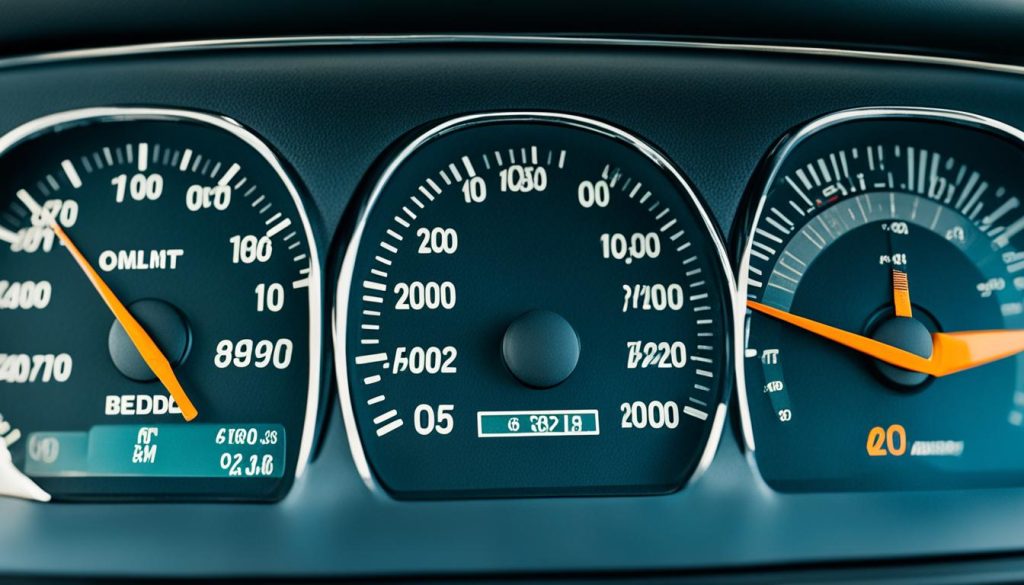
Interior Specifications and Personal Style
While practical considerations like fuel economy, cargo space, and safety are essential when purchasing a used car in Ontario, the buyer’s personal style and preferences should not be overlooked. The interior features, such as audio systems, infotainment technology, and comfort amenities, can greatly impact the overall driving experience and satisfaction. Buyers should test the functionality of these features and ensure they align with their individual needs and preferences. Additionally, the vehicle’s overall aesthetic appeal and how it fits the buyer’s driving style and personality should be taken into account to ensure a satisfying used car purchase.
Conclusion
Buying a used car in Ontario requires careful consideration of various factors, including tax implications, required documentation, insurance needs, and the overall condition and suitability of the vehicle. By understanding the unique challenges and regulations in the Ontario used car market, buyers can navigate the process with confidence and make an informed decision that aligns with their budget, lifestyle, and personal preferences.
Following the steps outlined in this comprehensive guide can help ensure a successful and stress-free used car purchase in Ontario. From evaluating the vehicle’s history and condition to understanding the legal requirements and insurance considerations, this guide provides a roadmap for buyers to make a prudent decision and avoid potential pitfalls.
Ultimately, the key to a successful used car purchase in Ontario is to approach the process with diligence, research, and a keen eye for detail. By taking the time to understand the market, inspect the vehicle thoroughly, and secure the necessary documentation and insurance, buyers can drive off with the perfect used car that meets their needs and budget.
FAQ
1. How much tax do you pay when buying a used car in Ontario?
The buyer is responsible for paying a 13% Retail Sales Tax (RST) on the vehicle. The tax is calculated based on the greater of the purchase price or the Red Book wholesale value of the vehicle.
2. Can you drive a used car you just bought in Ontario?
If you have purchased a used car privately, you must complete the vehicle registration process at ServiceOntario within six days of the sale. For used cars purchased from a dealership, the dealer will typically handle the registration process on the buyer’s behalf.
3. Do you need a safety to transfer ownership in Ontario?
Although not legally required from the seller, the Safety Standards Certificate (SSC) is an important document that certifies the fitness of the used vehicle. This certificate must be obtained to register the car with ServiceOntario.
4. How do I transfer ownership of a car to a friend in Ontario?
To transfer ownership of a car to a friend in Ontario, you will need to provide your Ontario driver’s license, the completed UVIP, proof of purchase (such as a bill of sale), the vehicle permit, the plate portion of the permit (if transferring plates), and the Safety Standards Certificate. The required fees, including taxes, will also need to be paid at ServiceOntario.

